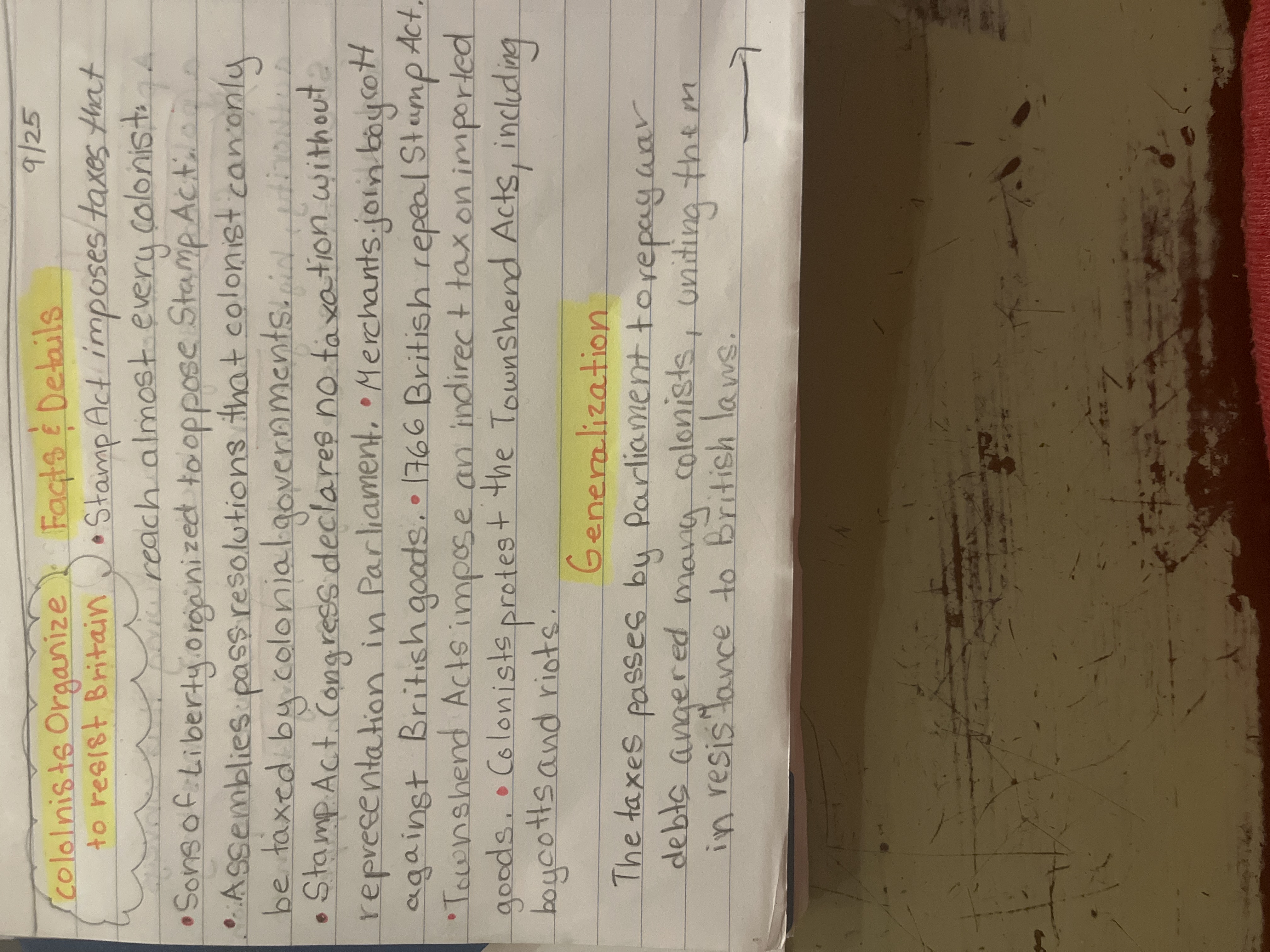What were the colonists' reactions to the Stamp Act and other British taxes?

Understand the Problem
The question appears to summarize key historical events related to American colonists resisting British rule, specifically focusing on the Stamp Act and other taxation measures. It aims to provide insights into the reactions of colonists to these measures and the unification of their response against British authority.
Answer
Colonists protested the Stamp Act with boycotts and slogans like 'no taxation without representation.'
The colonists reacted to the Stamp Act and other taxes with protests, forming groups like the Sons of Liberty, boycotting British goods, and passing resolutions asserting their right to be taxed only by their own assemblies. The Stamp Act Congress declared 'no taxation without representation' which unified many colonists.
Answer for screen readers
The colonists reacted to the Stamp Act and other taxes with protests, forming groups like the Sons of Liberty, boycotting British goods, and passing resolutions asserting their right to be taxed only by their own assemblies. The Stamp Act Congress declared 'no taxation without representation' which unified many colonists.
More Information
The intense reaction against the Stamp Act played a crucial role in unifying the colonies and setting the stage for the American Revolution. The concept of 'no taxation without representation' became a foundational idea for American independence.
Tips
A common mistake is to overlook the broader impact of these acts on colonial unity and the eventual push towards independence.
Sources
- The Stamp Act and the American Colonies, 1763-67 - parliament.uk
- 1764 to 1765 | Timeline | Articles and Essays - Library of Congress - loc.gov
- A report on the reaction to the Stamp Act, 1765 - gilderlehrman.org
AI-generated content may contain errors. Please verify critical information